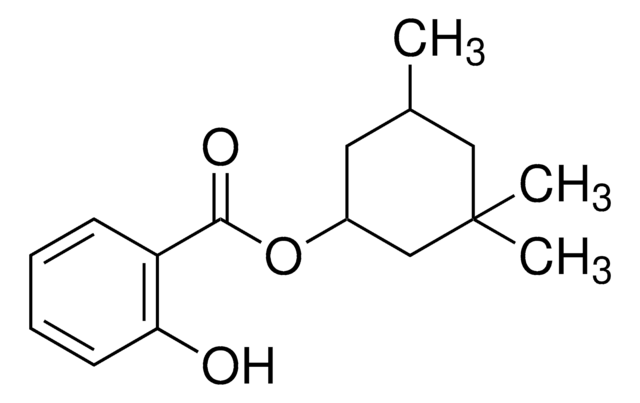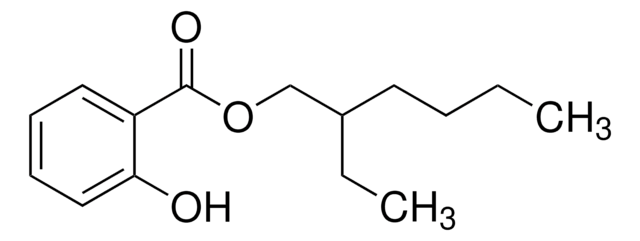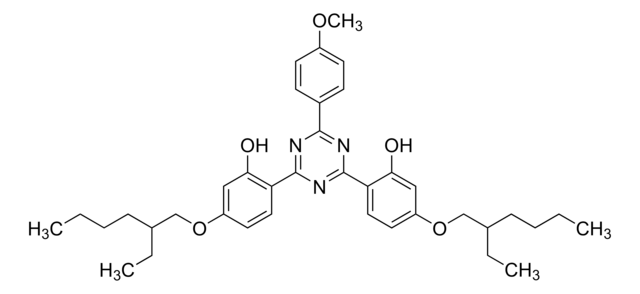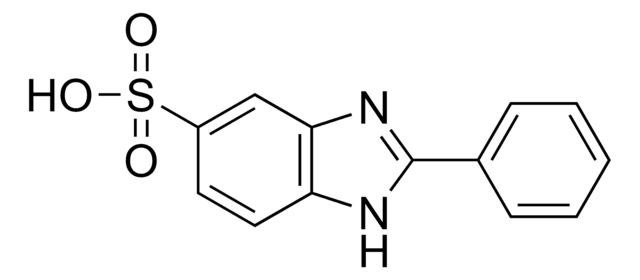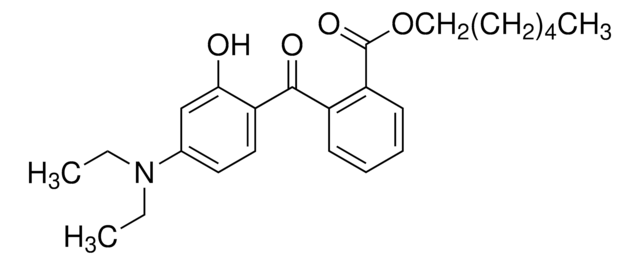PHR1073
Avobenzone
Pharmaceutical Secondary Standard; Certified Reference Material
Synonym(s):
1-(4-Methoxyphenyl)-3-(4-tert-butylphenyl)-1,3-propanedione, Butyl methoxydibenzoylmethane
About This Item
Recommended Products
grade
certified reference material
pharmaceutical secondary standard
Quality Level
Agency
traceable to USP 1045337
API family
avobenzone
CofA
current certificate can be downloaded
technique(s)
HPLC: suitable
gas chromatography (GC): suitable
application(s)
environmental
pharmaceutical (small molecule)
format
neat
storage temp.
2-30°C
SMILES string
COc1ccc(cc1)C(=O)CC(=O)c2ccc(cc2)C(C)(C)C
InChI
1S/C20H22O3/c1-20(2,3)16-9-5-14(6-10-16)18(21)13-19(22)15-7-11-17(23-4)12-8-15/h5-12H,13H2,1-4H3
InChI key
XNEFYCZVKIDDMS-UHFFFAOYSA-N
Looking for similar products? Visit Product Comparison Guide
General description
Pharmaceutical secondary standards for application in quality control, provide pharma laboratories and manufacturers with a convenient and cost-effective alternative to the preparation of in-house working standards.
Application
Analysis Note
Other Notes
Footnote
related product
Hazard Statements
Precautionary Statements
Hazard Classifications
Aquatic Chronic 4
Storage Class Code
11 - Combustible Solids
WGK
WGK 2
Choose from one of the most recent versions:
Already Own This Product?
Find documentation for the products that you have recently purchased in the Document Library.
Customers Also Viewed
Our team of scientists has experience in all areas of research including Life Science, Material Science, Chemical Synthesis, Chromatography, Analytical and many others.
Contact Technical Service
